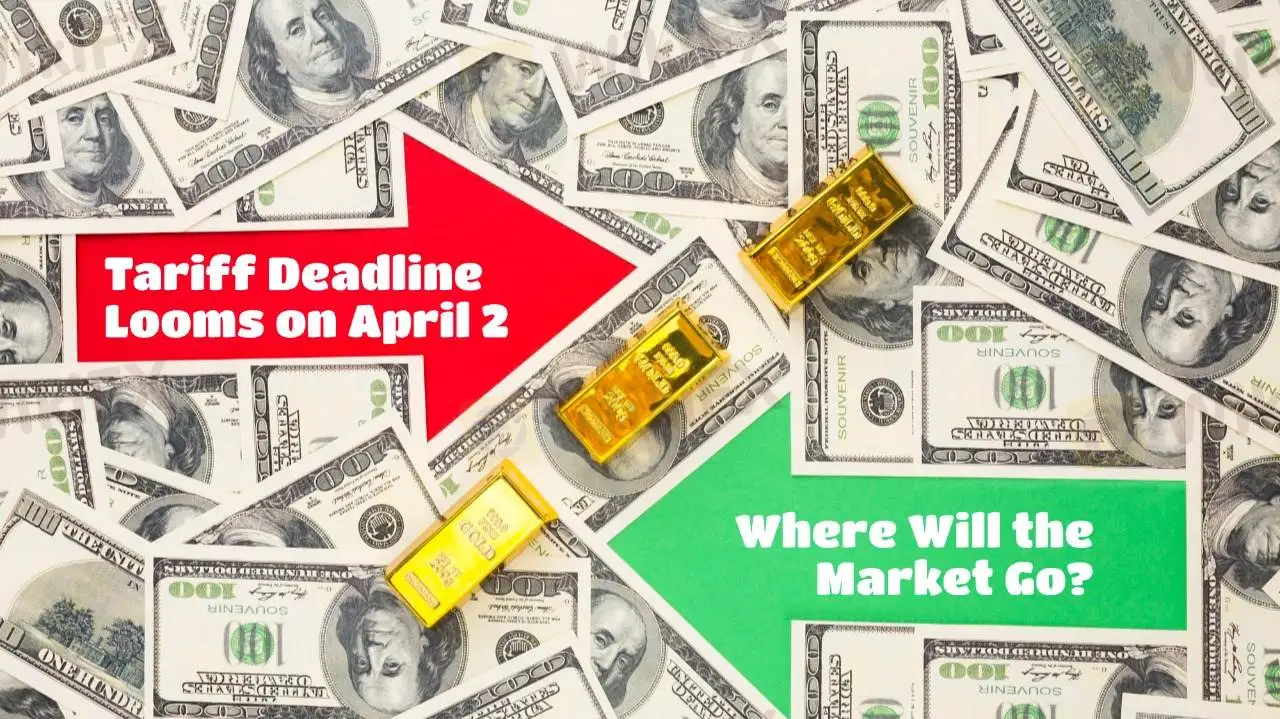简体中文
繁體中文
English
Pусский
日本語
ภาษาไทย
Tiếng Việt
Bahasa Indonesia
Español
हिन्दी
Filippiiniläinen
Français
Deutsch
Português
Türkçe
한국어
العربية
Tariff Deadline Looms on April 2: Where Will the Market Go?
Abstract:Global markets hold their breath as April 2nd approaches, a potential turning point in the battle between bulls and bears.

On April 2nd, the U.S. will unveil its potentially game-changing tariff policy that could reshape global trade. The Trump administration has positioned this policy as a key negotiating tool, deliberately shrouding it in uncertainty. Analysts suggest that the White House is using this ambiguity to gain an upper hand in future negotiations.
This strategy has not only left businesses uncertain about future planning but also kept market sentiment under pressure, even as major U.S. stock indices have rebounded over the past week. Investors remain cautious, awaiting clearer signals.
While major indices like the S&P and Nasdaq have seen modest gains recently, investors remain wary of the implications of the upcoming tariffs. Goldman Sachs analysts predict that market sentiment will continue to be influenced by both tariff details and corporate earnings in the short term.
While the White House anticipates that market volatility will ease after April 2, many institutions are cautious about the long-term effects. The tariffs could lead to rising consumer prices, squeezed corporate profits, and suppressed investment sentiment, which may slow down global economic recovery.
Analysts widely caution that once the tariff policy is officially enacted, it could trigger a new wave of market adjustments. Academy Securities strategists believe that global stock markets may face sell-off pressures following the resolution of tariff uncertainties.

Disclaimer:
The views in this article only represent the author's personal views, and do not constitute investment advice on this platform. This platform does not guarantee the accuracy, completeness and timeliness of the information in the article, and will not be liable for any loss caused by the use of or reliance on the information in the article.
Read more

OctaFX Flagged by Malaysian Authorities
OctaFX has been officially listed on warning lists by both Bank Negara Malaysia (BNM) and the Securities Commission Malaysia (SC). These alerts raise serious concerns about the broker’s status and whether it is legally allowed to operate in Malaysia.

TradingPRO: A Closer Look at Its Licences
In an industry where safety and transparency are essential, the regulatory status of online brokers has never been more important. For traders seeking to protect their capital, ensuring that a platform operates under recognised and stringent oversight can make all the difference. Keep reading to learn more about TradingPRO and its licenses.

Oil Price Breakout Incoming? Investors Should Stay Alert
Oil prices are hovering around a critical level, with potential yet to be fully unleashed. Investors must prepare for sudden changes.

New SEBI Regulations on Intraday Trading
The Securities and Exchange Board of India (SEBI) has implemented revised regulations on Intraday trading, with effect from November 20, 2024. These regulations are meant to lessen risks and prevent speculative trading practices.
WikiFX Broker
Latest News
How much money will you earn by investing in Vantage Broker?
IronFX vs Exness Review 2025: Comprehensive Broker Comparison
Fraudsters Are Targeting Interactive Brokers' Users with Lookalike Emails
Interactive Brokers: Global Office Visits and Licensing Details
Top Tips to Choose the Best Forex Broker in 2025
SEBI Notifies New F&O Rules for Investors - New Derivative Trading Limits & More Amendments
U.S. Jobs Data Released: A Potential Boost for Gold Prices
SkyLine Guide 2025 Malaysia: 100 Esteemed Judges Successfully Assembled
Everything you need to know about ADSS
Vantage Markets Review 2025: Trusted Forex and CFD Trading Since 2009
Currency Calculator


